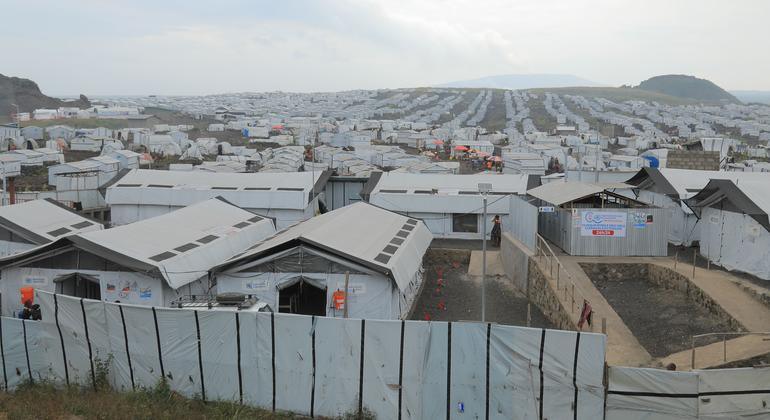In an alert on Tuesday, coordinators of the UN OCHA assistance said that six humanitarian workers had been killed since January – the last victim had been killed during the clashes last week near a hospital in the Masisi territory about 80 kilometers west of Goma in North Kivu.
The same clashes would have killed three other civilians and injured a child, according to OCHA, who said that more than 100,000 people had been forced to flee their homes due to new clashes last week in Lubero territory, 250 kilometers north of Goma.
Rape and other reported violations
Due to insecurity, several local health establishments had to suspend activities. Humanitarian partners on the ground also report that there have been generalized human rights violations in the midst of fighting, including rape, said OCHA.
Meanwhile, local managers of the South Kivu report gradually reopen in the territory of Kalehe, located about 65 kilometers north of the Bukavu provincial capital.
Unploded ammunition remain a problem in many areas affected by recent fights, including two schools in the city of Minova, north of Bukavu, according to humanitarian partners.
The head of the United Nations peacekeeping operations expressed his concern about the humanitarian crisis and the loss of life in the DRC at a press conference in the South Sudan capital, Juba on Monday.
Jean-Pierre Lacroix stressed that there is no military solution to the crisis and reiterated that “it is encouraging to see the progress and participation of stakeholders … Priority is a cessation of hostilities, the implementation of decisions of the Luanda process and humanitarian access insurance”.
He added that the United Nations mission faces limits in M23 controlled areas but continues to protect civilians and reduce violence in other fields, protecting hundreds of thousands of civilians daily.
Europe is faced with a “cradle in cane” health crisis, warns who
And in a medical update Tuesday, the United Nations health agency who warned that the countries of Europe and Central Asia have a major problem with “stagnated” health systems.
According to the World Health Organization (WHO), nearly 76,000 children in the region die before their fifth anniversary each year.
In addition, non -transmitted diseases claim one in six people before their 70s.
Large regional variations
The latest WHO European health report has shown that mortality from under five years of age from 1.5 to 40.4 deaths per 1,000 living births in 53 countries in the region.
The main causes of death include prior birth complications, birth asphyxiation and congenital cardiac anomalies.
Despite many progress in the fight against non -transmitted diseases through Europe and Central Asia, conditions such as heart and pulmonary diseases, strokes and diabetes remain the biggest killers.
At least 10 countries have a 25% reduction in premature mortality from these four non -transmitted diseases.
However, one in six still dies before passing their 70th anniversary from cardiovascular disease, cancer, diabetes or chronic respiratory disease, which said.
Chad: Almost four million could be hungry during the skinny season
Chad humanitarian workers warn against the impact of the next Lean season on food security, in the midst of already disastrous conditions, UN spokesperson Stéphane Dujarric said on Tuesday.
A regional assessment has revealed that some 2.4 million people do not get enough to eat, which should reach 3.7 million people, or 20% of the population, during the lean season from June to August.
More than two million children under the age of five are malnourished, including more than half a million who suffer from acute serious malnutrition which risks dying in the coming months without the appropriate treatment.
In addition, nearly 300,000 pregnant and breastfeeding women suffer from acute malnutrition.
Multiple shocks
Mr. Dujarric told New York journalists that “this crisis is due to shocks, including natural disasters such as floods, which have destroyed cultivated land, in addition to the growing price of basic products.”
Humanitarian workers warn that under significant funding is received before the end of March, there will be no time to prevent a large -scale food security and nutrition crisis.
They use $ 1.45 billion to support operations in Chad this year, but have so far received less than $ 60 million, or about four percent.




